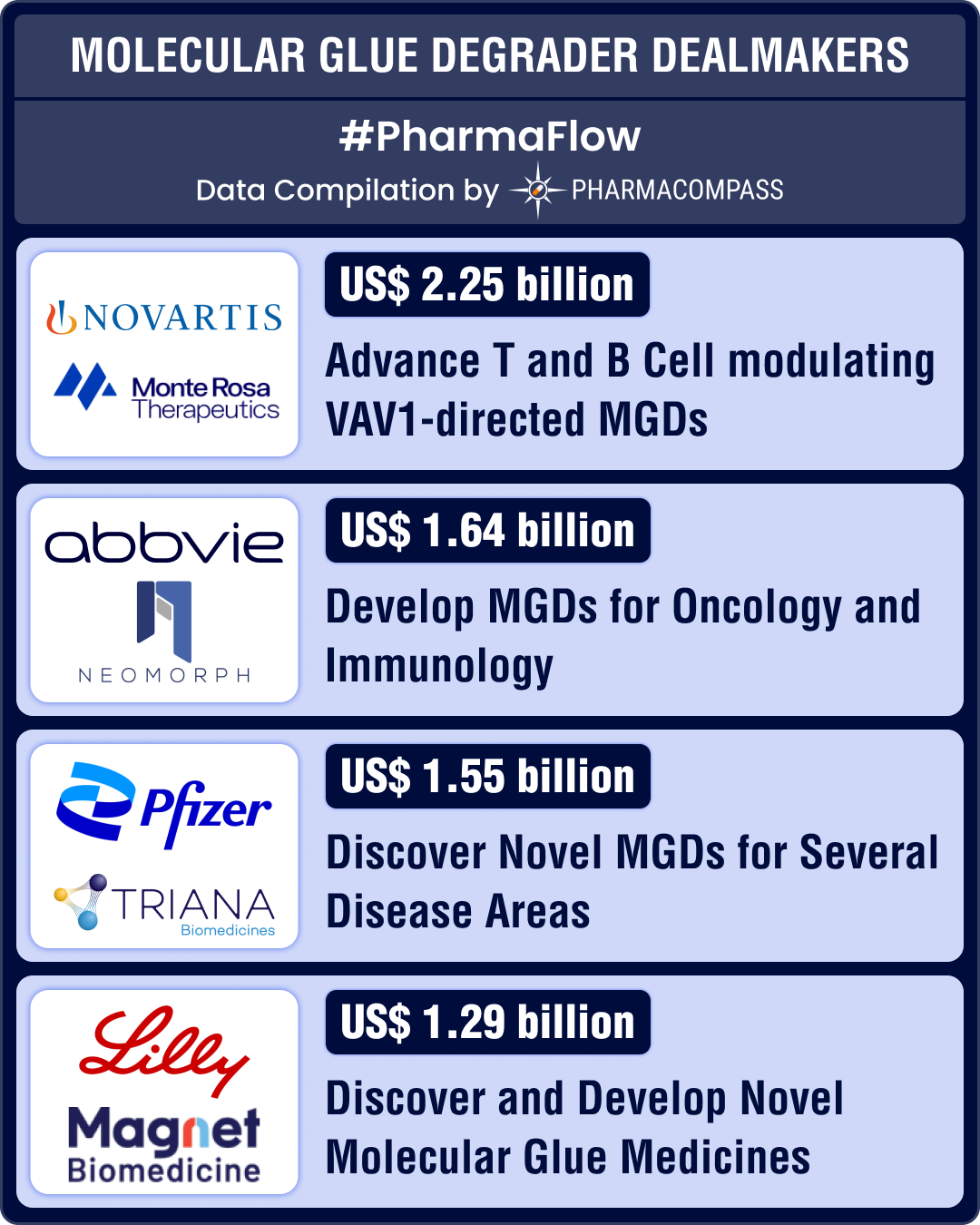
By PharmaCompass
2025-03-27
Impressions: 632 (Article) || 14 (Video)
This week’s Phispers brings you lots of news from China. AstraZeneca is investing US$ 2.5 billion in a new Beijing research and development center and has also signed collaboration deals with Chinese biotech firms. Merck has entered into a potential US$ 2 billion licensing deal with a Chinese biotech for a heart disease drug and Novo Nordisk has inked a US$ 2 billion deal for an innovative obesity treatment from Chinese drugmaker United Laboratories. And Bayer has secured global rights to an experimental oral cancer drug candidate from China’s Puhe BioPharma.
After Eli Lilly’s US$ 27 billion investment announced last month, Johnson & Johnson has announced a massive US$ 55 billion US manufacturing push in order to avoid tariffs on drug imports proposed by the Trump administration.
In a landmark moment for women’s healthcare, the US Food and Drug Administration (FDA) has approved the first new antibiotic for urinary tract infections (UTIs) in nearly 30 years. Known as Blujepa, it has been developed by GSK. In other approvals, Alnylam’s Amvuttra has been approved to treat cardiomyopathy of wild-type or hereditary ATTR-CM in adults to reduce the chance of cardiovascular death, hospitalizations and urgent heart failure visits.
Meanwhile, Sanofi has announced a nearly US$ 2 billion acquisition of Dren Bio’s promising autoimmune disease treatment. And GSK is launching a massive study to explore whether its shingles vaccine might hold the key to reducing dementia risk.
Amid probe, Astra doubles down on China with new US$ 2.5 bn R&D center, biotech deals
AstraZeneca has announced a US$ 2.5 billion investment to establish a new R&D center in Beijing. This initiative is part of a strategic partnership with the Beijing municipal government and aims to deepen the company's engagement with China’s life sciences ecosystem. The new facility will focus on early-stage research and clinical development, incorporating an artificial intelligence and data science laboratory.
This investment comes in the wake of the detention of Astra’s China president, Leon Wang, in October 2024 amid investigations into alleged illegal drug importation, data privacy breaches and medical insurance fraud. The British-Swedish drugmaker also announced collaborations with Chinese biotech firms, Harbour BioMed and Syneron Bio, as well as a joint venture with BioKangtai to develop, produce, and market vaccines for respiratory and other infectious diseases.
Merck buys rights to Chinese heart disease med: Merck has entered into a licensing agreement with Jiangsu Hengrui Pharmaceuticals, a Chinese biotech company, to acquire exclusive global rights (excluding Greater China) to develop, manufacture, and commercialize HRS-5346, an investigational oral drug aimed at lowering lipoprotein(a) levels to prevent cardiovascular diseases. The deal includes an upfront payment of US$ 200 million with potential milestone payments of up to US$ 1.77 billion, totaling nearly US$ 2 billion.
Novo signs US$ 2 bn deal for obesity drug: Novo Nordisk has entered into a licensing agreement with China’s United Laboratories International Holdings for the ex-China rights to develop, manufacture, and commercialize UBT251, an experimental "triple-G" drug aimed at treating obesity, type 2 diabetes, and other diseases. The deal includes an upfront payment of US$ 200 million and potential milestone payments of up to US$ 1.8 billion, totaling up to US$ 2 billion.
Bayer gains rights to Puhe’s cancer candidate: Bayer has secured global rights to an experimental oral cancer drug candidate from China’s Puhe BioPharma. The experimental drug is designed to block the protein PRMT5 that plays a role in tumor growth, especially in cancers where a specific gene called MTAP is missing.
As Trump’s tariff threats loom, J&J plans US$ 55 bn investment in US with four new plants
Johnson & Johnson has announced plans to invest over US$ 55 billion in the US over the next four years. This strategic move is in response to potential 25 percent tariffs on pharmaceutical imports proposed by the Trump administration. The company plans to build four new plants in the country, starting with a US$ 2 billion high-tech biologics manufacturing facility in Wilson, North Carolina. Last month, its rival Eli Lilly had announced a US$ 27 billion investment in the US to avoid tariffs.
Tremfya okayed for Crohn’s disease: J&J’s Tremfya (guselkumab) has bagged FDA approval for the treatment of adults with moderate to severely active Crohn’s disease (CD), a chronic inflammatory condition of the gastrointestinal tract. The med is already approved for treating moderate to severely active ulcerative colitis. This is the fourth FDA approval for Tremfya since it won its first nod to treat plaque psoriasis in 2017.
Sanofi to acquire Dren Bio’s immunology unit for up to US$ 1.9 bn
Sanofi has announced plans to acquire Dren Bio’s immunology unit, specifically focusing on a promising treatment for autoimmune diseases (called DR-0201). The agreement includes an upfront payment of US$ 600 million, with potential milestone payments of up to US$ 1.3 billion, totaling US$ 1.9 billion.
In autoimmune diseases, the body’s defense system mistakenly attacks its own healthy cells. DR-0201 aims to help by removing specific immune cells (B-cells) that are involved in this process. Early clinical studies suggest that this approach may reset the adaptive immune system, potentially leading to sustained, treatment-free remission in patients with refractory B-cell-mediated autoimmune diseases, such as lupus.
FDA approves first new antibiotic for UTIs in nearly 30 years for women, girls
FDA has approved GSK’s antibiotic, Blujepa (gepotidacin), for the treatment of uncomplicated urinary tract infections (uUTIs) in female adults and patients aged 12 years and older who weigh at least 40 kg. This marks the first approval of a new class of oral antibiotics for uUTIs in nearly 30 years. Its novel mechanism of action differs from most existing antibiotics, making it effective against certain antibiotic-resistant strains.
Meanwhile, GSK has initiated a study involving approximately 1.4 million individuals aged 65 to 66 in the UK to investigate whether its shingles vaccine, Shingrix, can reduce the risk of developing dementia. It aims to provide more definitive evidence on the potential protective effects of the Shingrix vaccine against dementia. Previous observational studies have suggested a possible association, but these were limited to identifying correlations rather than causation.
Alnylam’s Amvuttra okayed for treating ATTR-CM: Alnylam Pharmaceuticals’ Amvuttra (vutrisiran) has clinched FDA approval for treating cardiomyopathy of wild-type or hereditary ATTR-CM in adults to reduce the chance of cardiovascular death, hospitalizations and urgent heart failure visits. Amvuttra is now the first medication approved in the US to treat both ATTR-CM and polyneuropathy of hereditary transthyretin-mediated amyloidosis (hATTR-PN).
The PharmaCompass Newsletter – Sign Up, Stay Ahead
Feedback, help us to improve. Click here
Image Credit : Phisper Infographic by PharmaCompass license under CC BY 2.0
“ The article is based on the information available in public and which the author believes to be true. The author is not disseminating any information, which the author believes or knows, is confidential or in conflict with the privacy of any person. The views expressed or information supplied through this article is mere opinion and observation of the author. The author does not intend to defame, insult or, cause loss or damage to anyone, in any manner, through this article.”








